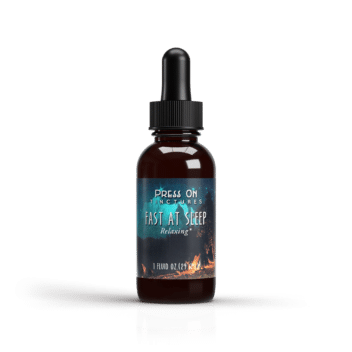
Valerian in Herbal Medicine
Valerian in Herbal Medicine
Valerian root has been used for centuries as a natural remedy for various ailments. It is renowned for its calming properties and is a popular choice for those seeking natural anxiety relief. In this article, we will explore the history, benefits, and uses of valerian root in herbal medicine.
A Brief History of Valerian
The use of valerian dates back to ancient Greece and Rome. Physicians like Hippocrates described its medicinal properties, and it was later used as a remedy for insomnia and nervousness. Over time, valerian has found its place in traditional medicine systems across the world, including Ayurveda and Traditional Chinese Medicine.
Valerian in Modern Herbal Medicine
In modern times, valerian is primarily known for its role in herbal medicine as a natural anxiety relief option. It is often used to treat conditions like anxiety, insomnia, and stress-related disorders. The root of the valerian plant is the part most commonly used for medicinal purposes.
The Benefits of Valerian Root
Valerian root is often touted for its potential health benefits. Here, we will discuss some of the most notable valerian root benefits:
Natural Anxiety Relief
One of the main reasons people turn to valerian root is for its calming effects. Valerian is believed to increase the amount of a chemical called gamma-aminobutyric acid (GABA) in the brain. GABA helps regulate nerve cells and has a calming effect on anxiety.
Many people choose valerian as a natural alternative to prescription medications for anxiety, as it is less likely to cause side effects. However, it is important to consult with a healthcare provider before starting any new treatment.
Improved Sleep Quality
Valerian root is often used as a natural remedy for insomnia. Studies suggest that valerian can help improve sleep quality and reduce the time it takes to fall asleep. It may also help people who wake up frequently during the night.
Unlike some over-the-counter sleep aids, valerian is not known to cause drowsiness the next day, making it a suitable option for those who need to maintain alertness during their daily activities.
Stress Reduction
The calming effects of valerian root can also help reduce stress. By promoting relaxation, valerian may help individuals better cope with stressful situations. This can be particularly beneficial for those dealing with chronic stress or high-pressure environments.
Other Potential Benefits
While valerian is best known for its calming effects, it may also offer other health benefits. Some research suggests that valerian root may help reduce symptoms of menopause, such as hot flashes and mood swings. It may also have potential as a pain reliever, although more research is needed in this area.
How to Use Valerian Root
Valerian root can be consumed in various forms, including capsules, tablets, teas, and tinctures. Each form has its advantages, and the choice largely depends on personal preference.
Valerian Capsules and Tablets
Capsules and tablets are a convenient way to take valerian root. They come in standardized doses, making it easy to control the amount consumed. This form is particularly popular for those who prefer not to taste the herb.
Valerian Tea
Valerian tea is made by steeping the dried root in hot water. This method allows you to enjoy the calming aroma of valerian while consuming it. Some people find the taste of valerian tea to be strong or unpleasant, so it may be helpful to add honey or lemon to improve the flavor.
Valerian Tincture
A valerian tincture is a concentrated liquid extract of the herb, typically made by soaking the root in alcohol or vinegar. Tinctures are usually taken by adding a few drops to a glass of water or juice. This form is absorbed quickly by the body, making it an effective option for those seeking fast relief.
Safety and Side Effects
Valerian is generally considered safe for most people when used as directed. However, some individuals may experience side effects such as headache, dizziness, or gastrointestinal discomfort. It is important to use valerian in moderation and consult with a healthcare provider, especially if you are pregnant, nursing, or taking other medications.
Interactions with Other Medications
Valerian may interact with certain medications, including sedatives, antidepressants, and anti-anxiety drugs. If you are taking any prescription medications, consult with your healthcare provider before using valerian root to avoid potential interactions.
Conclusion
Valerian root has a long history of use in herbal medicine, particularly as a natural remedy for anxiety and sleep disorders. Its calming properties make it a popular choice for those seeking alternative treatments for anxiety relief and improved sleep quality. As with any supplement, it is important to use valerian responsibly and consult with a healthcare provider to ensure it is the right choice for your needs.
By understanding the benefits and uses of valerian root, you can make informed decisions about incorporating this powerful herb into your wellness routine. Whether you choose capsules, tea, or tinctures, valerian offers a natural way to support your mental and emotional well-being.

